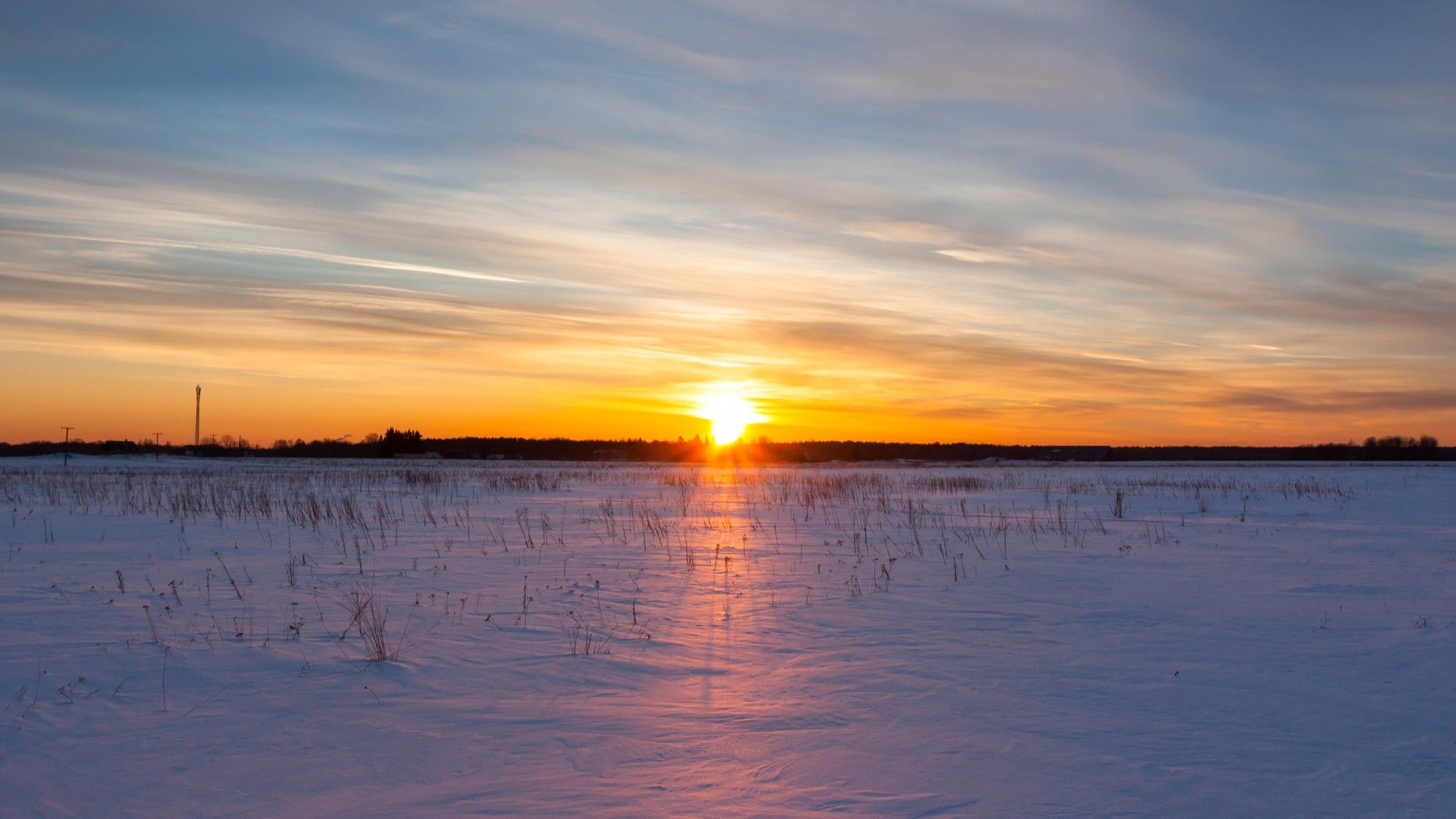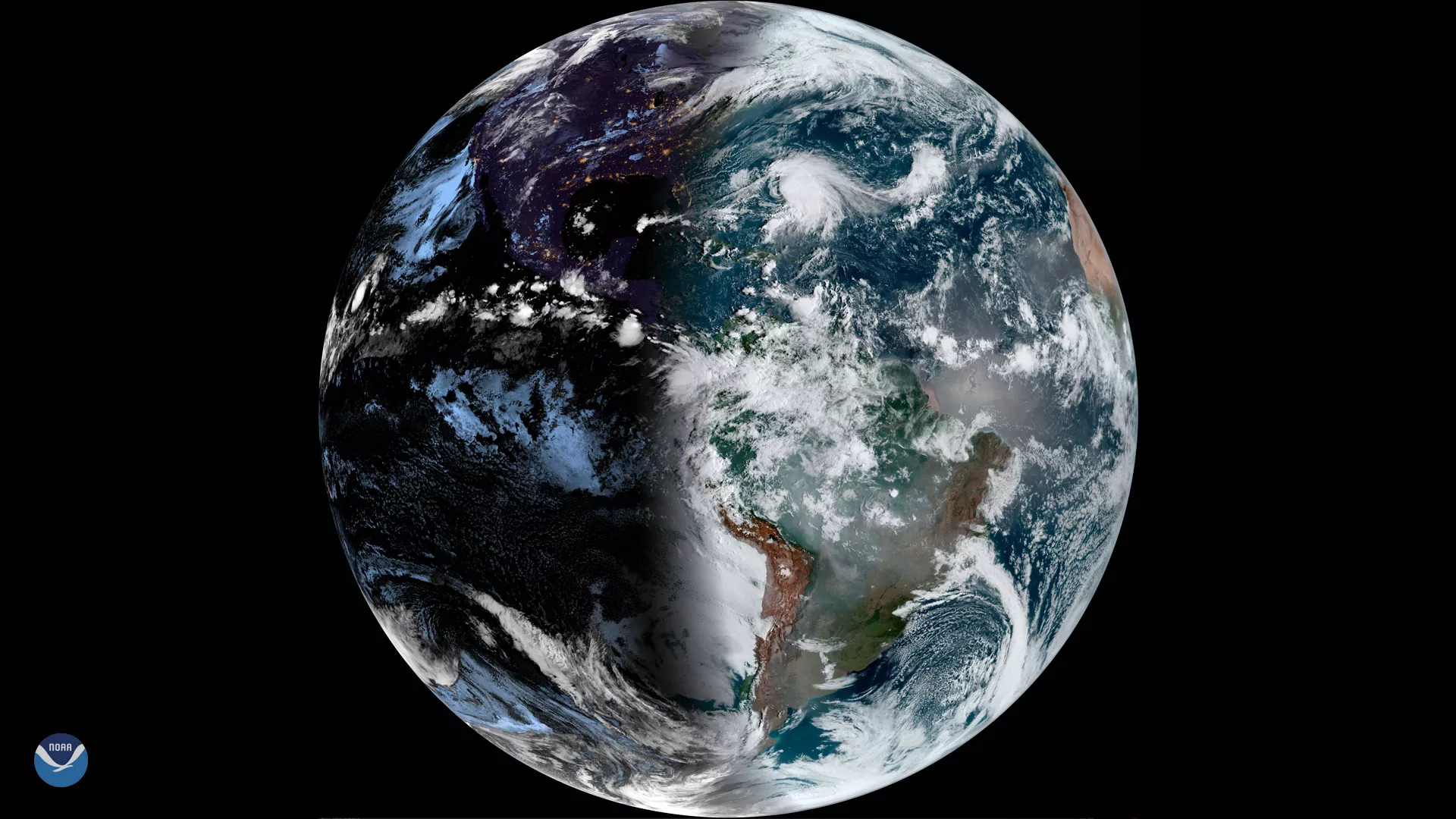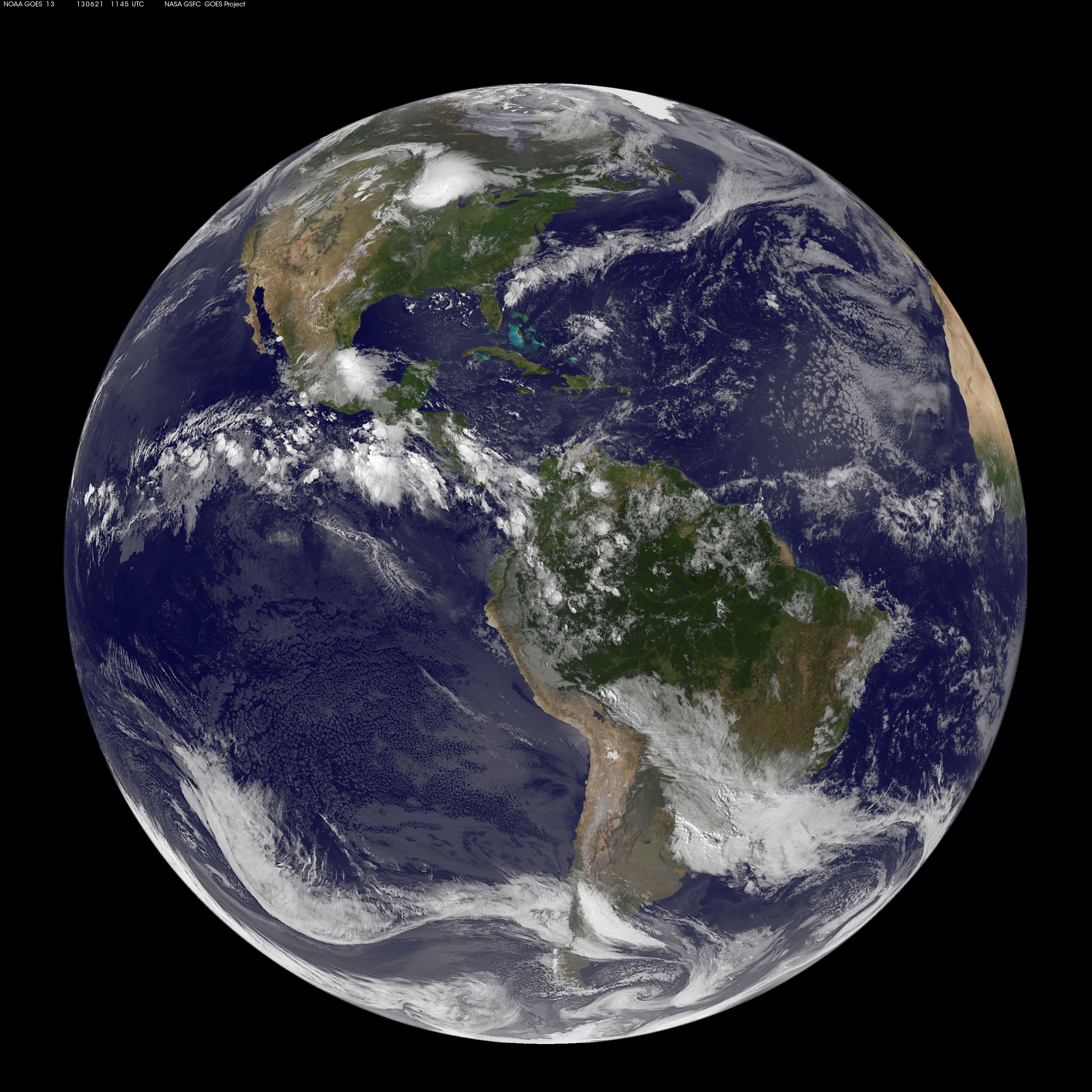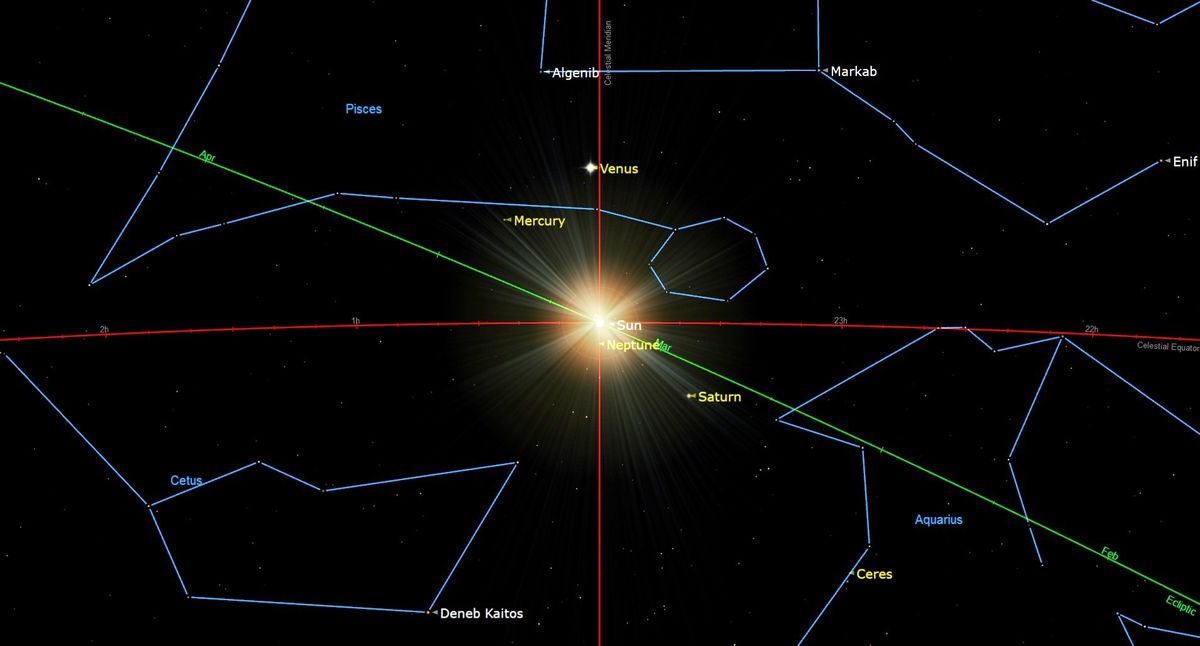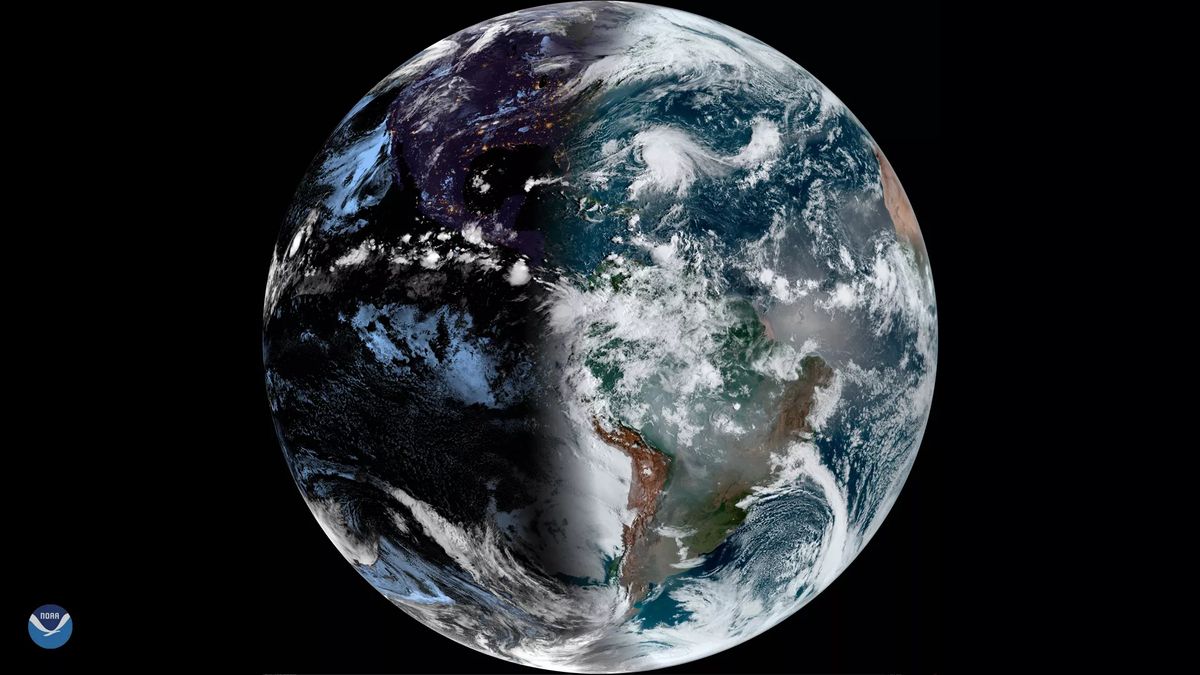
Northern Hemisphere
The Northern Hemisphere is the half of Earth that is north of the Equator. For other planets in the Solar System, north is defined as being in the same celestial hemisphere relative to the invariable plane of the solar system as Earth's North Pole. Owing to Earth's axial tilt of 23.439281°, winter in the Northern Hemisphere lasts from the December solstice to the March equinox, while summer lasts from the June solstice through to the September equinox. The dates vary each year due to the difference between the calendar year and the astronomical year. Within the northern hemisphere, oceanic currents can change the weather patterns that affect many factors within the north coast. Such events include ENSO. Trade winds blow from east to west just above the equator. The winds pull surface water with them, creating currents, which flow westward due to the Coriolis effect. The currents then bend to the right, heading north.
